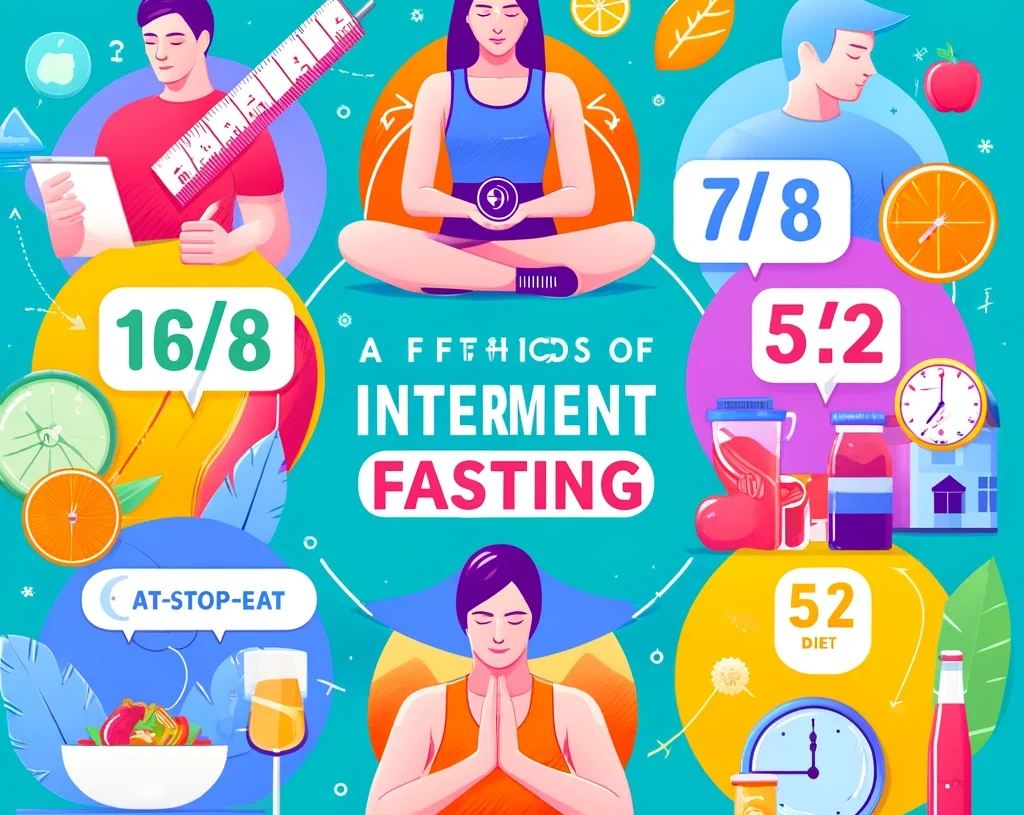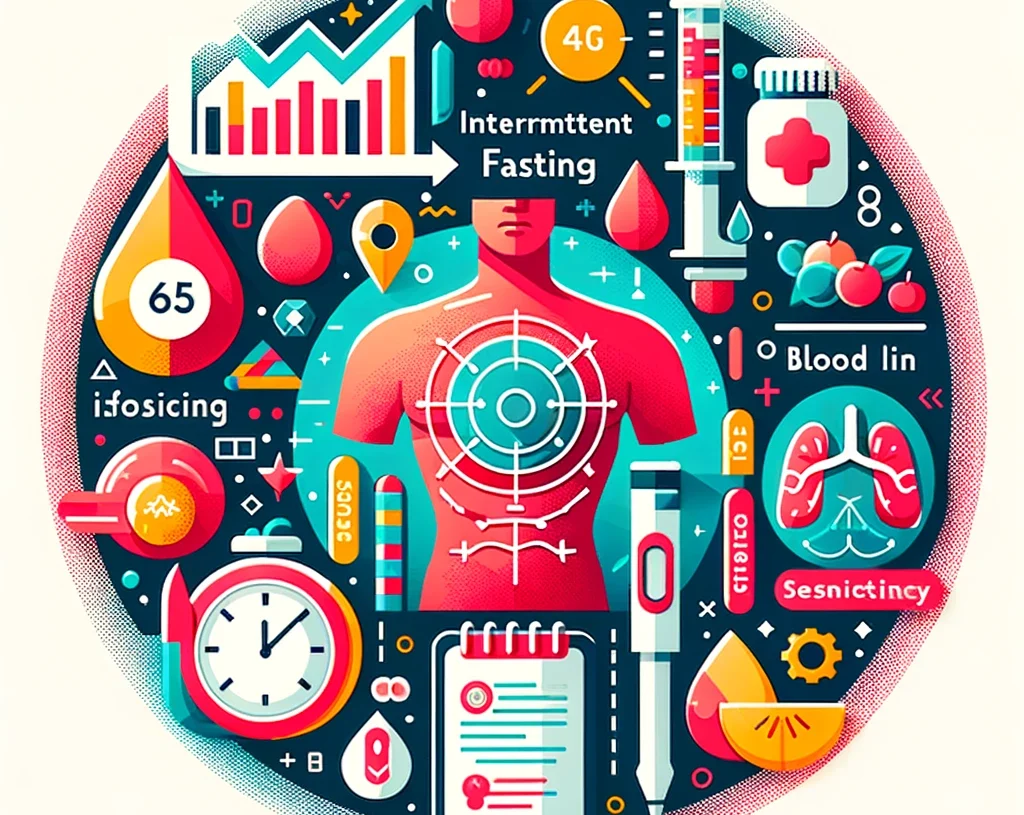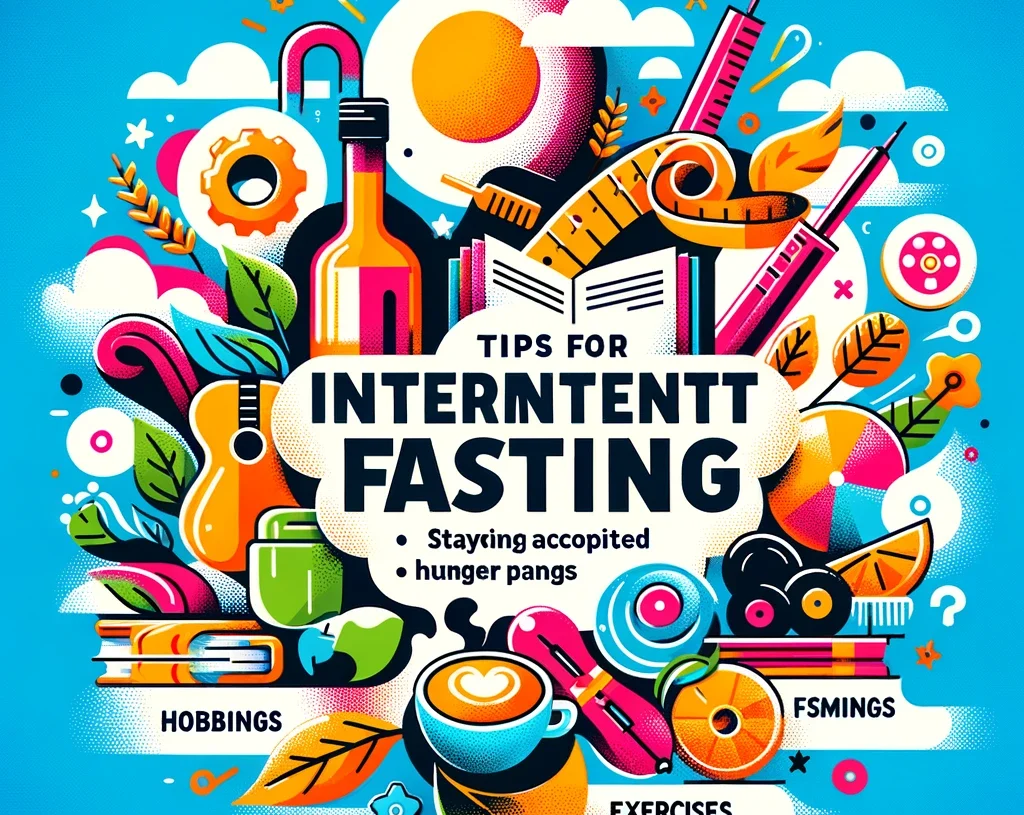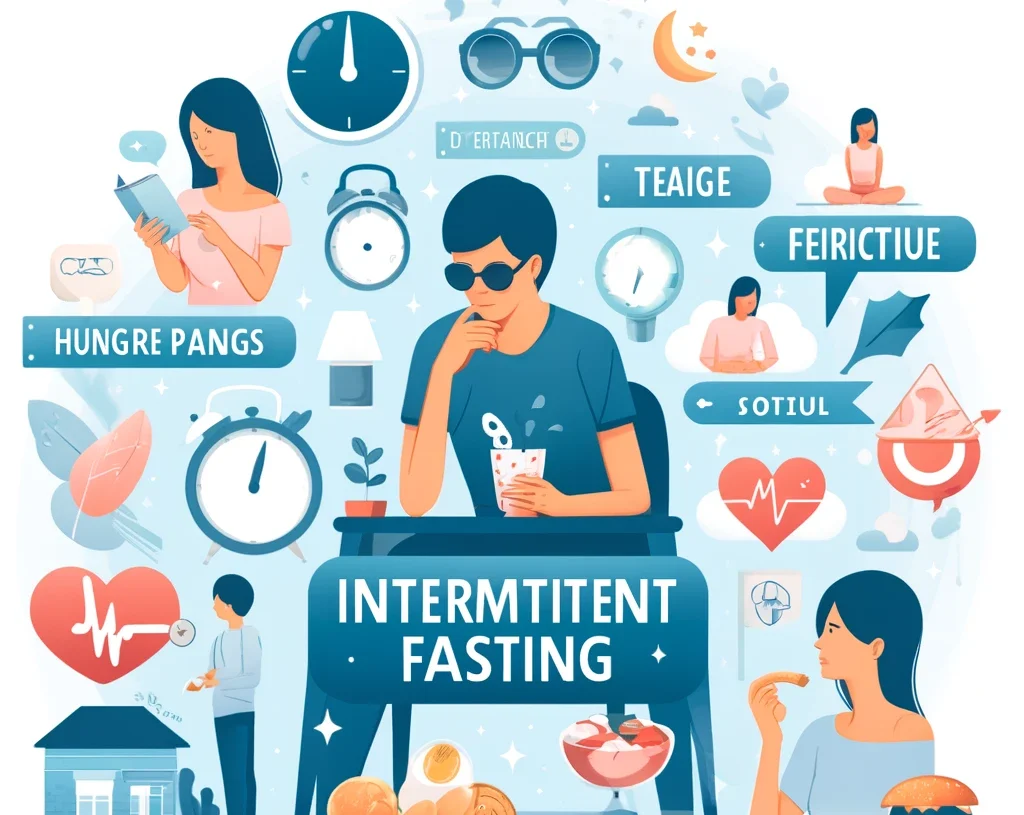Intermittent Fasting: Health Benefits and Tips for Beginners
Introduction
Intermittent fasting (IF) has taken the health and wellness world by storm, and it’s easy to see why. This eating pattern doesn’t focus on counting calories or eliminating food groups. Instead, it’s all about timing your meals to maximize health benefits. By switching between periods of fasting and eating, you can tap into a range of health perks, from weight loss to increased energy levels and even improved mental clarity.
While it may seem like a new trend, the concept of fasting has been practiced for centuries across different cultures for both health and spiritual reasons. From the ancient Greeks fasting for mental clarity to religious fasting during Ramadan, it’s a pattern rooted in ancient tradition. Ready to dive into this fascinating approach to nutrition? Let’s explore the ins and outs of intermittent fasting, the health benefits you can expect, and how to get started.
What Is Intermittent Fasting?
Intermittent fasting is a cyclical eating pattern where you alternate between periods of eating and fasting. Unlike traditional diets that focus on restricting specific foods, IF is more about limiting the timing of your meals to optimize the body’s ability to burn stored fat and repair itself. The goal is to give your digestive system a break, allowing your body to switch from burning glucose to fat for fuel.
During the fasting period, your body exhausts its immediate energy supply from recent meals, causing insulin levels to drop and prompting the body to burn fat reserves for energy. This process, along with an overall reduction in daily calorie intake, is linked to many health benefits like improved metabolism, weight loss, and even better brain function.


Different Methods of Intermittent Fasting
Intermittent fasting isn’t a one-size-fits-all approach. Several methods exist, each allowing you to choose a pattern that best fits your lifestyle and goals. These are some of the most frequently used methods:
1. 16/8 Method
The 16/8 method is one of the easiest and most common fasting approaches. You abstain from food for 16 hours, followed by an 8-hour eating period. For example, you might skip breakfast and eat only between noon and 8 p.m., enjoying two or three meals during that period. By extending your overnight fast, you burn more fat in the morning and create a more significant calorie deficit.
2. 5:2 Method
With the 5:2 method, you eat normally for five days a week while reducing your calorie intake to about 500-600 on two non-consecutive days. For instance, you could choose to restrict your intake on Tuesday and Thursday and eat normally on other days. This method works well for those who prefer flexibility and are comfortable with short-term calorie restriction.
3. Alternate-Day Fasting
Alternate-day fasting involves fasting every other day. On fasting days, you either abstain from food entirely or consume a very small meal of around 500 calories. This approach can be more challenging due to the frequent fasting periods, but it’s known to improve insulin sensitivity and promote weight loss.
4. Eat-Stop-Eat
With the Eat-Stop-Eat approach, you fast for a complete 24-hour period once or twice weekly. For instance, you could stop eating after dinner one night and not eat again until dinner the following night. Although challenging, this method can give your digestive system a complete rest, leading to benefits like improved digestion and weight loss.
5. Warrior Diet
This approach is more intense than the others, allowing you to eat only during a 4-hour window each night and fast for the remaining 20 hours. The idea is to consume small portions of raw fruits and vegetables during the day and have one substantial meal at night. While it can be tough for beginners, this diet is popular among those looking for rapid fat loss.
6. Spontaneous Meal Skipping
For those who prefer a less structured approach, spontaneous meal skipping might be a suitable option. Skip a meal whenever you’re not hungry or too busy to eat. If you’re comfortable with fasting periods that aren’t planned, this can be an easy way to ease into intermittent fasting without any set schedule.


Why Try Intermittent Fasting?
Health Benefits
Weight Loss
By reducing the window during which you eat, it’s easier to consume fewer calories overall, leading to weight loss. During fasting periods, your body shifts into fat-burning mode because insulin levels are low, forcing your body to tap into stored fat for energy. This extended fasting window also increases fat-burning, which may help you shed unwanted pounds.
Metabolic Health
intermittent fasting has the potential to enhance insulin sensitivity and stabilize blood sugar, lowering the chances of developing type 2 diabetes. It also balances hormone levels and reduces inflammation, positively impacting metabolic markers and potentially preventing other metabolic diseases like heart disease.
Mental Clarity
Fasting increases the production of ketones, a stable source of energy that enhances brain function. This leads to better focus and concentration. Some research also suggests fasting may boost brain-derived neurotrophic factor (BDNF), a protein linked to improved cognitive function.
Cellular Repair and Longevity
During fasting periods, your body initiates cellular repair processes, such as autophagy, where it removes damaged cells and regenerates new ones. This cellular cleanup is linked to improved longevity and a reduced risk of neurodegenerative diseases like Alzheimer’s.
Reduced Inflammation
Chronic inflammation is linked to many health conditions, including heart disease and arthritis. Intermittent fasting has been shown to reduce inflammation markers, which could relieve symptoms of these conditions and promote overall well-being.
Lifestyle Improvements
Simplicity
Intermittent fasting is simpler than restrictive diets because you only need to plan meals within a specific timeframe. Instead of stressing over calorie counting or strict food rules, you focus on when you eat, which makes meal prep and adherence easier.
Flexibility
Intermittent fasting offers the flexibility to choose a fasting window that best suits your schedule. Whether you’re an early riser or a night owl, you can customize your eating pattern around work, family, or social commitments, making it a sustainable long-term solution.
Improved Energy Levels
Many people report increased energy levels once they adjust to intermittent fasting. By training your body to burn fat more efficiently, you’re able to avoid energy crashes and stay productive throughout the day.


Tips for Beginners
1. Start Slow and Steady
If you’re new to fasting, start with shorter fasting periods to help your body adapt gradually. Try a 12/12 method (fasting for 12 hours and eating within a 12-hour window) before building up to longer fasting periods like the 16/8 method. This gradual progression will help you avoid extreme hunger and burnout.
2. Stay Hydrated
Drink plenty of water, herbal teas, or black coffee during fasting periods to curb hunger and stay hydrated. Avoid sugary drinks like juice or soda since they can spike insulin levels and break your fast.
3. Choose Nutrient-Dense Foods
During your eating window, make the most of it by filling up on lean proteins, healthy fats, fiber-rich vegetables, and whole grains. These foods will keep you full longer and provide essential vitamins and minerals to sustain your energy levels.
4. Mind the Break-Fast Meal
Your first meal after fasting is crucial. Make sure it’s well-balanced, including lean proteins, fresh produce, and healthy fats to transition your body smoothly from fasting to feeding. Steer clear of processed junk food and focus on clean, natural options.
5. Get Quality Sleep
A good night’s sleep can make all the difference in how you handle fasting. Aim for at least 7-8 hours of sleep each night to help manage hunger hormones and reduce stress levels.
6. Stay Busy
Staying busy can be a useful way to manage hunger pangs and prevent yourself from thinking too much about food. Use your fasting period to catch up on reading, tackle a project, or head out for a brisk walk.
Common Challenges and How to Tackle Them
Hunger Pangs
It’s normal to feel hungry initially as your body adjusts to a new eating schedule. Drinking plenty of water, herbal tea, or black coffee can help curb cravings, and staying busy keeps your mind off food. Over time, your body will adapt, and hunger pangs will become less frequent.
Social Situations
Social gatherings or events can make sticking to a fasting schedule challenging. Plan ahead by packing snacks for your eating window or communicating your fasting goals to friends and family for support. If needed, allow yourself some flexibility to break your fast early in social situations.
Headaches
Headaches can occur during fasting, especially if you’re new to it. They may result from dehydration, low blood sugar, or caffeine withdrawal. Stay hydrated, maintain proper electrolyte balance, and ease into fasting gradually to avoid this discomfort.
Fatigue
Fatigue is a common issue when your body is adjusting to fasting. Make sure you’re getting enough quality sleep and eating nutrient-dense foods during your eating window to sustain energy levels.


Is Intermittent Fasting Right for You?
Who Should Avoid Intermittent Fasting?
While intermittent fasting offers many benefits, it’s not suitable for everyone. Those with a history of eating disorders, pregnant or breastfeeding women, and people with certain medical conditions should avoid fasting. It’s also important for those with diabetes, low blood pressure, or other chronic conditions to consult their healthcare provider before starting.
Consult a Healthcare Professional
If you’re uncertain about whether intermittent fasting is right for you, consult a healthcare provider to discuss potential risks and benefits based on your unique health profile. They can help you determine a safe and effective approach that aligns with your goals.
Conclusion
Intermittent fasting isn’t a one-size-fits-all solution, but it offers a wide range of benefits when done correctly. Whether you’re looking to lose weight, improve metabolic health, or simplify your eating habits, fasting provides flexibility and structure. Start slow, listen to your body, and embrace the journey toward a healthier lifestyle!
Frequently Asked Questions.
- What is intermittent fasting, and how does it work?
Intermittent fasting is an eating pattern that alternates between periods of eating and fasting. It works by limiting the time window during which you eat, encouraging your body to burn stored fat for energy. - Is intermittent fasting a diet?
No, it’s not a traditional diet. Instead of focusing on specific foods or calorie counting, it emphasizes when you eat rather than what you eat. - What are the different methods of intermittent fasting?
Common methods include the 16/8 method, 5:2 diet, alternate-day fasting, Eat-Stop-Eat, and the Warrior Diet. - Which fasting method is best for beginners?
The 16/8 method is often recommended for beginners because it involves skipping only breakfast, which is easier to incorporate into daily routines. - Can I drink coffee or tea while fasting?
Yes, drinking black coffee or unsweetened herbal tea is generally allowed, as they are low in calories and won’t break your fast. - How long should I fast to see results?
Results depend on your goals and chosen method. Some people see changes in weight or energy levels within a few weeks, while others need more time. - Can intermittent fasting help with weight loss?
Yes, many people use intermittent fasting for weight loss because it helps reduce overall calorie intake and promotes fat burning. - Is intermittent fasting safe for everyone?
No, it’s not suitable for everyone, especially those with a history of eating disorders, pregnant or breastfeeding women, or people with certain health conditions. - Will I lose muscle mass while fasting?
Proper nutrition and strength training during eating windows can help maintain muscle mass, even while fasting. - Can I work out during fasting periods?
Yes, many people find they can exercise during fasting periods, but it’s essential to listen to your body and avoid overexertion. - Will intermittent fasting affect my metabolism?
Short-term fasting can boost metabolism by promoting fat burning, but prolonged fasting could potentially slow it down. - Can I take supplements while fasting?
Most supplements are fine to take during fasting if they don’t contain added sugars or significant calories. - What should I eat during my eating window?
Focus on nutrient-dense foods like lean proteins, vegetables, whole grains, and healthy fats to maximize the benefits of fasting. - What are the potential side effects of fasting?
Common side effects include hunger, headaches, irritability, and fatigue, especially during the initial adjustment phase. - Can intermittent fasting help with metabolic health?
Yes, intermittent fasting has been shown to improve insulin sensitivity, regulate blood sugar levels, and reduce inflammation. - How long does it take for my body to adjust to fasting?
It varies from person to person, but many people adapt within a few weeks as their bodies become accustomed to the new schedule. - Can intermittent fasting improve mental clarity?
Yes, fasting increases ketone production, which provides a steady energy source for the brain and can improve focus and clarity. - Should I consult a doctor before starting intermittent fasting?
If you have any health conditions or concerns, it’s best to consult a healthcare professional before starting intermittent fasting. - Does intermittent fasting affect women differently than men?
Some research suggests women might be more sensitive to hormonal changes during fasting, so they should consider a gentler approach. - Can I do intermittent fasting indefinitely?
Many people maintain intermittent fasting as a lifestyle choice because it offers long-term flexibility and health benefits. However, it’s essential to listen to your body and adjust as needed.
Further Reading and Resources
-
- Books:
- “The Complete Guide to Fasting” by Dr. Jason Fung
Offers comprehensive insights into different fasting methods, scientific benefits, and practical advice. - “Fast. Feast. Repeat.” by Gin Stephens
A beginner-friendly book that explains intermittent fasting strategies and schedules.
- “The Complete Guide to Fasting” by Dr. Jason Fung
- Research Articles:
- “Effects of Intermittent Fasting on Health, Aging, and Disease”
An in-depth review of the health benefits and mechanisms of intermittent fasting, published in the New England Journal of Medicine. - “Impact of Intermittent Fasting on Glucose Homeostasis and Inflammatory Markers in Healthy Adults”
A study from the American Journal of Clinical Nutrition detailing how intermittent fasting affects blood sugar and inflammation.
- “Effects of Intermittent Fasting on Health, Aging, and Disease”
- Web Resources:
- National Institutes of Health (NIH)
The NIH provides trustworthy information about intermittent fasting, including its effects and risks. - Harvard Health Blog
Harvard Health Publishing discusses the science behind intermittent fasting and its impact on weight loss and metabolism.
- National Institutes of Health (NIH)
- Videos and Podcasts:
- Dr. Rhonda Patrick on Intermittent Fasting
A comprehensive interview with Dr. Patrick, a scientist exploring the effects of fasting on cellular repair and longevity. - FoundMyFitness Podcast
Offers interviews with experts discussing the benefits of fasting and how to implement it effectively.
- Dr. Rhonda Patrick on Intermittent Fasting
- Books:
































